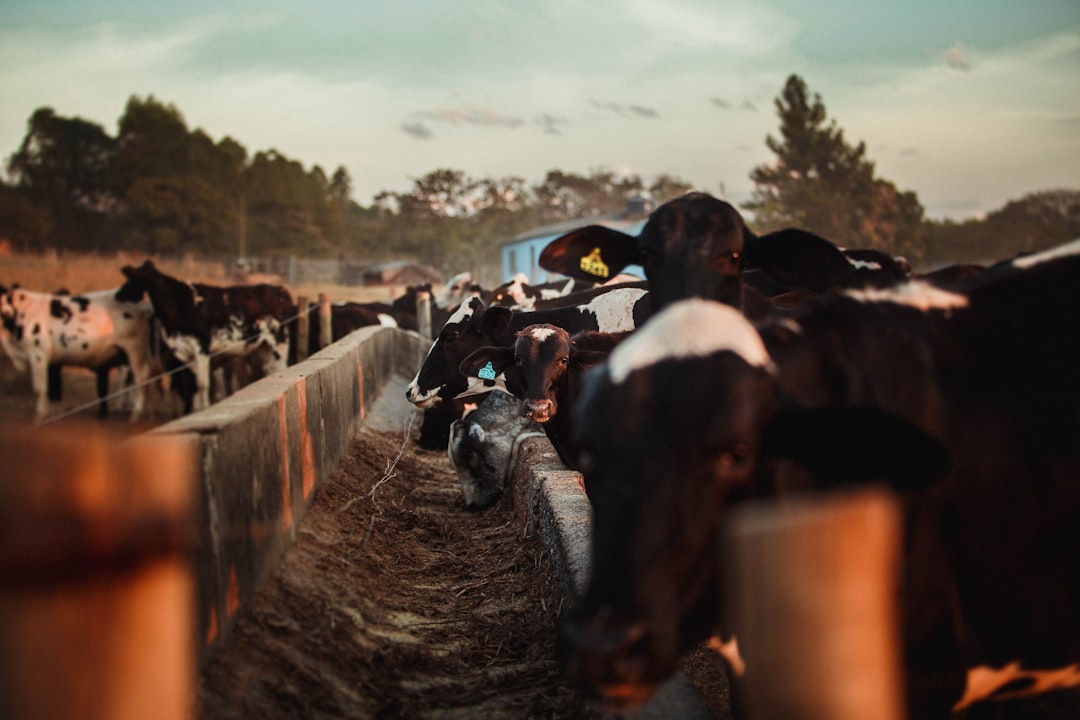The dairy industry is facing increasing scrutiny over ethical considerations, with consumers worldwide expressing concerns about animal welfare, environmental impact, and production practices. This blog post explores the key ethical issues in dairy farming, consumer concerns, and global initiatives aimed at addressing these challenges.
Animal Welfare Concerns
Animal welfare is a primary ethical concern in dairy farming, with several issues at the forefront:
-
Outdoor Access and Living Conditions
-
Consumers increasingly expect dairy cows to have access to the outdoors, rejecting practices that keep cows permanently indoors.
-
Comfortable living conditions, including clean and spacious housing, are essential for reducing stress and promoting well-being.
-
-
Cow-Calf Separation and Bull Calf Fate
-
The early separation of calves from their mothers and the fate of male calves are significant ethical concerns.
-
Some farms are exploring alternative practices like cow-calf contact systems to address these issues.
-
-
Health-Related Issues
-
Lameness, mastitis, and the overuse of antibiotics are health-related concerns that impact consumer perceptions.
-
Ethical dairy farming emphasizes preventative healthcare and responsible antibiotic use.
-
Environmental Impact
The environmental footprint of dairy farming is another critical ethical consideration:
-
Sustainability Practices
-
Ethical dairy farming often involves sustainable practices like reduced chemical use, efficient water management, and responsible land stewardship.
-
These practices help minimize the environmental impact and support long-term ecosystem health.
-
-
Greenhouse Gas Emissions
-
Dairy farming contributes to greenhouse gas emissions, primarily through methane production.
-
Ethical dairy farms are exploring strategies to reduce emissions, such as methane-reducing feed additives.
-
Consumer Concerns and Expectations
Consumers are increasingly informed and concerned about dairy production practices:
-
Transparency and Traceability
-
Consumers seek transparency in dairy production, wanting to know how their milk is produced and where it comes from.
-
Ethical dairy farming emphasizes traceability to build trust with consumers.
-
-
Willingness to Pay More
-
Many consumers are willing to pay a premium for dairy products produced under ethical standards, particularly those ensuring animal welfare.
-
This trend supports the economic viability of ethical dairy farming practices.
-
Global Initiatives and Best Practices
Several global initiatives are promoting ethical dairy farming practices:
-
FARM Animal Care Program
-
The U.S. FARM program sets standards for animal care, ensuring high-quality treatment and welfare for dairy cows.
-
This program includes regular evaluations to ensure compliance with best practices.
-
-
International Dairy Federation (IDF) Guidelines
-
The IDF promotes global standards for dairy animal welfare, emphasizing practices that align with the Five Freedoms framework.
-
These guidelines support the development of quality management systems for dairy animal welfare.
-
Conclusion
The ethical considerations of dairy farming are multifaceted, involving animal welfare, environmental sustainability, and consumer expectations. By addressing these concerns through transparent practices, improved welfare standards, and sustainable production methods, the dairy industry can enhance its reputation and align with evolving consumer values.
Additional Resources
For more detailed information on ethical dairy farming and consumer concerns, consider the following resources:
-
Ethical Dairy Farming Guides: Consult guides from organizations like Farmer Joe’s for insights into ethical dairy practices.
-
Consumer Surveys: Review surveys highlighting consumer perceptions and concerns about dairy farming practices.
-
Global Initiatives: Explore initiatives like the FARM Animal Care Program and IDF guidelines for promoting ethical dairy production worldwide.
Citations:
- https://farmerjoes.com/ethical-dairy-farming-a-better-way-for-consumers/
- https://www.compassioninfoodbusiness.com/media/5822649/consumer-perception-around-milk.pdf
- https://www.usdairy.com/sustainability/animal-care
- https://dfamilk.com/newsroom/dfa-newsroom/june-2024/milked-with-love-how-dairy-farmers-make-ethical-da
- https://www.dllgroup.com/en/blogs/blogsoverview/Balancing-Evolving-Consumer-Trends-in-Dairy-Product-Consumption
- https://fil-idf.org/our-work/animal-health-welfare-2/promoting-the-welfare-of-dairy-animals/
- https://greenstarsproject.org/2022/05/22/ethical-issues-with-dairy-farming/
- https://ahdb.org.uk/news/consumer-insight-reputation-factors-outweigh-cost

Comments
No comments yet. Be the first to comment!
You must be logged in to comment. Login